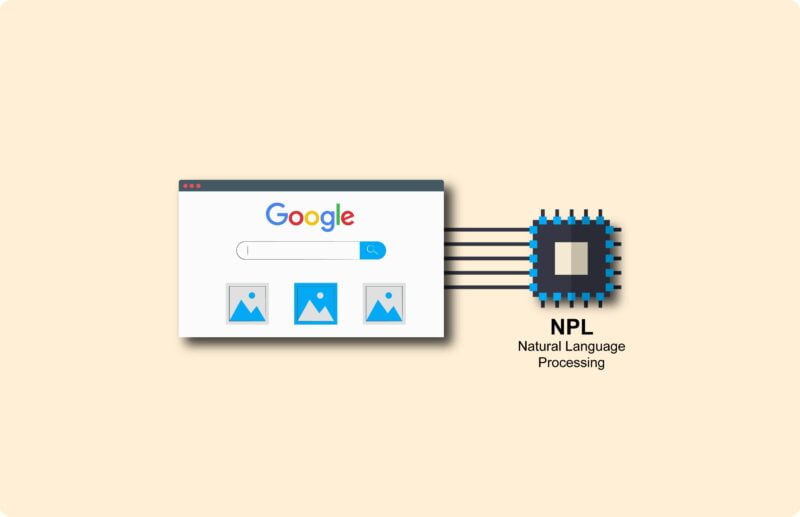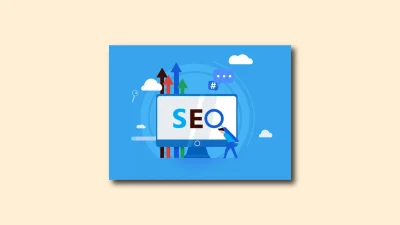How does Natural Language Processing (NLP) affect SEO?

The term Natural Language Processing (NLP) is becoming increasingly common. In fact, NLP affects search engine optimization. The tool makes search engines understand human language better and better, something that is advantageous for SEO strategies. But what exactly is NLP in what ways does it influence the way search engines create and optimize content?
What exactly does NLP entail and what does it have to do with SEO?
NLP has everything to do with artificial intelligence and aims to make machines understand human language better and better. It causes the way content is interpreted by search engines to change.

So NLP makes search engine optimization more human. Search engines are increasingly able to understand the context and intent behind search queries, thus delivering more accurate and relevant search results.
How does NLP affect search engine algorithms?
Today, thanks to NLP, it is increasingly possible to understand the context and emotion of a text. This ensures that not only is a piece of text produced, but it also matches the needs of the client and target audience. So thanks to NLP, search engines no longer focus only on keywords, but also on content quality and relevance.
In the future, technology will get smarter and smarter and understand the message of a text even better. With the advent of new technology, the way SEO is created must also change. So for SEO specialists, it is good to know how to make smart and efficient use of the new technologies.
What should SEO specialists start paying attention to?
Unlike before, SEO specialists should now not just focus on keywords. A good idea of the target audience and the meaning behind a text are also important to the way of content creation.
Important here is natural writing that answers the target audience’s questions and the use of synonyms and related terms to make the texts more relevant and contextual. The text should also be easy to read, such as by using headings, sub-headings, whitespace and paragraphs. In addition, content should be renewed regularly. This pleases the audience and leads to higher readership. Moreover, this produces good results in the search engines.
Optimizing content with NLP in mind
With NLP in mind, you need to adjust your approach to content creation. Focus on writing natural, conversational content that answers your target audience’s questions(1). Use synonyms and related terms to improve context and relevance.
Also, make sure your content is well structured and readable, with clear headings and sub-headings. Remember to regularly update and enrich your content with new insights and information, which helps improve relevance and authority in the eyes of both your audience and search engines(2).
Content creation and analysis using NLP tools
There are several NLP tools that help create and analyze content. The purpose of these tools is to provide insight into what the target audience thinks about topics related to a company’s industry or brand. Below I list some examples of these tools:
- Google Natural Language API: Google Natural Language API is an NPL tool from Google that analyzes texts in several ways, namely through entity recognition, syntactic analysis and sentiment analysis. In this way, the search engine better understands the deeper meaning, context and structure of the text.
- MarketMuse: search engines use MarketMuse to research content, using NLP and AI. They also analyze content quality and the tool helps develop content strategies. All with the goal of improving the quality of content and increasing the likelihood of visitors to written articles.
- SEMrush Writing Assistant: this tool is all about SEO optimization. Search engines base their suggestions on the articles with a particular keyword that come out best in Google’s search results. They also consider tone-of-voice or readability.
- Clearscope: Clearscope is a useful writing tool. It improves the structure of the text and makes the content more relevant. To accomplish this, the tool conducts keyword and competitive analysis.
- OpenAI’s GTP-3: This is a content optimization platform that uses NLP to help you write better ranked, more relevant content. It provides detailed keyword and competitive analysis.

A deeper connection with the audience using NLP
Although NLP seems to have emerged primarily to make content creation easy for copywriters or SEO specialists, it also helps improve content quality. NLP provides a deeper connection with the audience.
The tool explores the audience’s natural language and ensures that content is created in a way that matches the audience’s needs and search intent. Not only does this result in higher audience engagement, but it also has positive implications for the brand. The more humanly written text makes the content more accessible to more people.
What tactics are used?
There are several ways to improve the relevance, comprehensibility or findability of content. These are some tactics:
- Semantic variations: for search engines to better understand that texts are relevant to a wide range of searches, it is smart to use synonyms and semantically similar expressions when creating content. This way, search engines can easily find the content.
- Search intent: search engines must properly analyze the intent of searches to properly answer the audience’s questions.
- Conversation queries: speech-driven searches are becoming more common. Audiences often ask these searches in the form of a question. Incorporate the answers into the content to increase discoverability.
- Improve readability: use natural language and clear structure to increase readability. Search engines process content more easily this way.
- Relevant context: important that the context is relevant to the theme or topic of the website. So don’t write about topics that have nothing to do with the website’s theme.
The future of NLP in the world of SEO
NLP is expected to play an increasing role in the future with respect to SEO. The search engines will get even smarter and understand human language better and better. SEO specialists should focus mainly on semantic search optimization and writing relevant context that is written in a natural way, preferably with questions and answers in the text.
Summary
So NLP is a very useful tool to optimize search results, as long as it is done in an efficient way. Not only does NLP help with easier and faster content creation, it also improves the audience’s reading experience and engagement with the company.






